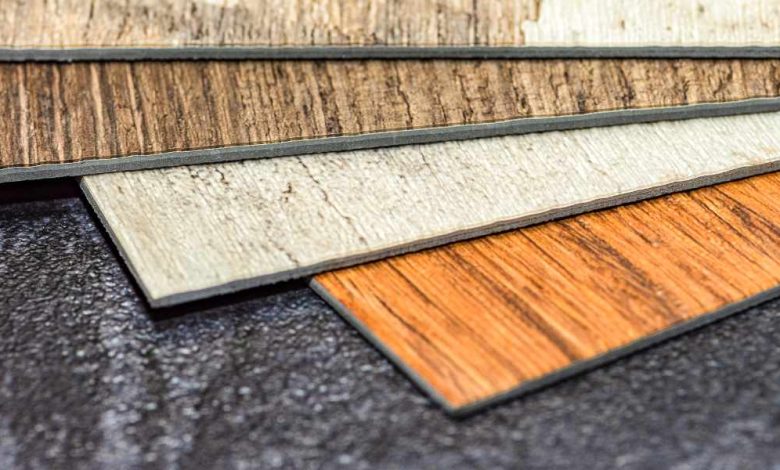Decoding Commercial Vinyl Flooring Cost
Decoding Commercial Vinyl Flooring Cost

Commercial spaces demand flooring solutions that not only exude aesthetics but also withstand the rigors of heavy foot traffic and daily wear and tear. In recent years, commercial vinyl flooring has emerged as a popular choice due to its durability, versatility, and cost-effectiveness. In this comprehensive guide, we will delve into the various factors influencing commercial vinyl flooring costs.
Understanding Commercial Vinyl Flooring
Commercial Vinyl Flooring Overview
Commercial vinyl flooring is a resilient and synthetic flooring option known for its ability to replicate the look of natural materials like wood or stone. It is a popular choice for various commercial spaces, including offices, retail stores, healthcare facilities, and hospitality settings. This flooring type offers numerous advantages, such as water resistance, easy maintenance, and a wide array of design options.
Types of Commercial Vinyl Flooring
- Luxury Vinyl Tiles (LVT): These are individual tiles that mimic the appearance of materials like wood or stone. LVT is known for its realistic visuals and comes in various patterns and textures.
- Vinyl Composition Tiles (VCT): VCT is a budget-friendly option consisting of vinyl chips embedded in vinyl composition. While it may not replicate natural materials as convincingly as LVT, it provides a durable and cost-effective flooring solution.
- Sheet Vinyl: Sheet vinyl comes in large rolls, offering seamless installation. This type is often preferred for large commercial spaces due to its uniform appearance and easy maintenance.
Factors Influencing Commercial Vinyl Flooring Cost
Material Quality and Thickness
- Premium vs. Budget Options: The quality of the vinyl flooring material significantly impacts its cost. Premium options with advanced wear layers and realistic designs may cost more than budget-friendly alternatives.
- Thickness Matters: Thicker vinyl flooring tends to be more durable and can withstand heavy traffic better. However, thicker materials often come with a higher price tag.
Installation Costs
- Professional Installation: While some DIY enthusiasts may attempt to install vinyl flooring themselves, professional installation is recommended for commercial spaces. Installation costs can vary based on factors like the complexity of the project, subfloor preparation, and the type of vinyl flooring chosen.
- Adhesive and Underlayment: Additional costs may arise from the need for adhesives and underlayment materials. High-quality adhesives and underlayment contribute to the overall performance and longevity of the flooring.
Maintenance and Longevity
- Cost of Maintenance: One of the benefits of vinyl flooring is its low maintenance requirements. However, investing in high-quality materials and finishes can reduce long-term maintenance costs, making it a wise investment.
- Longevity Considerations: Commercial vinyl flooring is known for its durability, but the longevity can vary based on factors like foot traffic and maintenance. Understanding the expected lifespan of the chosen vinyl flooring is crucial for assessing its overall cost-effectiveness.
Tips for Cost-Effective Commercial Vinyl Flooring
1. Conduct a Cost-Benefit Analysis: Before making a decision, evaluate the overall cost of the flooring, including materials, installation, and maintenance, against the expected lifespan and performance.
2. Explore Different Thickness Options: While thicker vinyl may cost more initially, it can offer better long-term durability. Consider the traffic and usage in the commercial space to determine the most suitable thickness.
3. Obtain Multiple Quotes: Seek quotes from different suppliers and contractors to ensure you are getting a competitive price. Be wary of significantly lower quotes, as they may indicate lower-quality materials or subpar installation.
4. Consider Life-Cycle Costs: Look beyond the upfront costs and consider the long-term expenses associated with maintenance and potential replacements. Investing in higher-quality vinyl may prove more cost-effective in the long run.
Conclusion
When it comes to commercial vinyl flooring, understanding the factors that contribute to the overall cost is essential for making informed decisions. By considering material quality, installation, and long-term maintenance, businesses can strike a balance between cost-effectiveness and the aesthetic appeal of their commercial spaces. Whether opting for luxury vinyl tiles, vinyl composition tiles, or sheet vinyl, the key lies in finding the right balance that aligns with both budget constraints and the demands of the environment.









